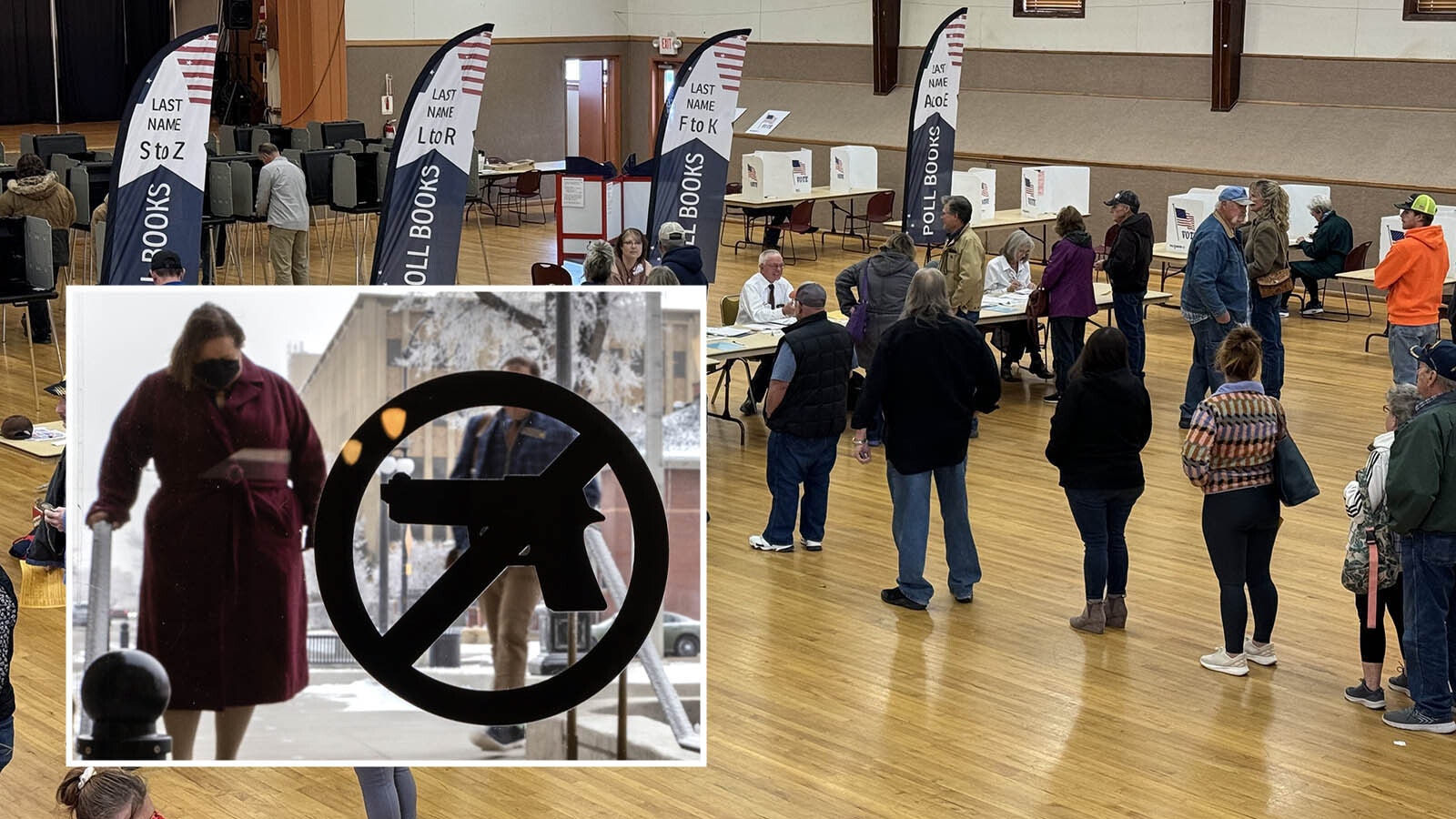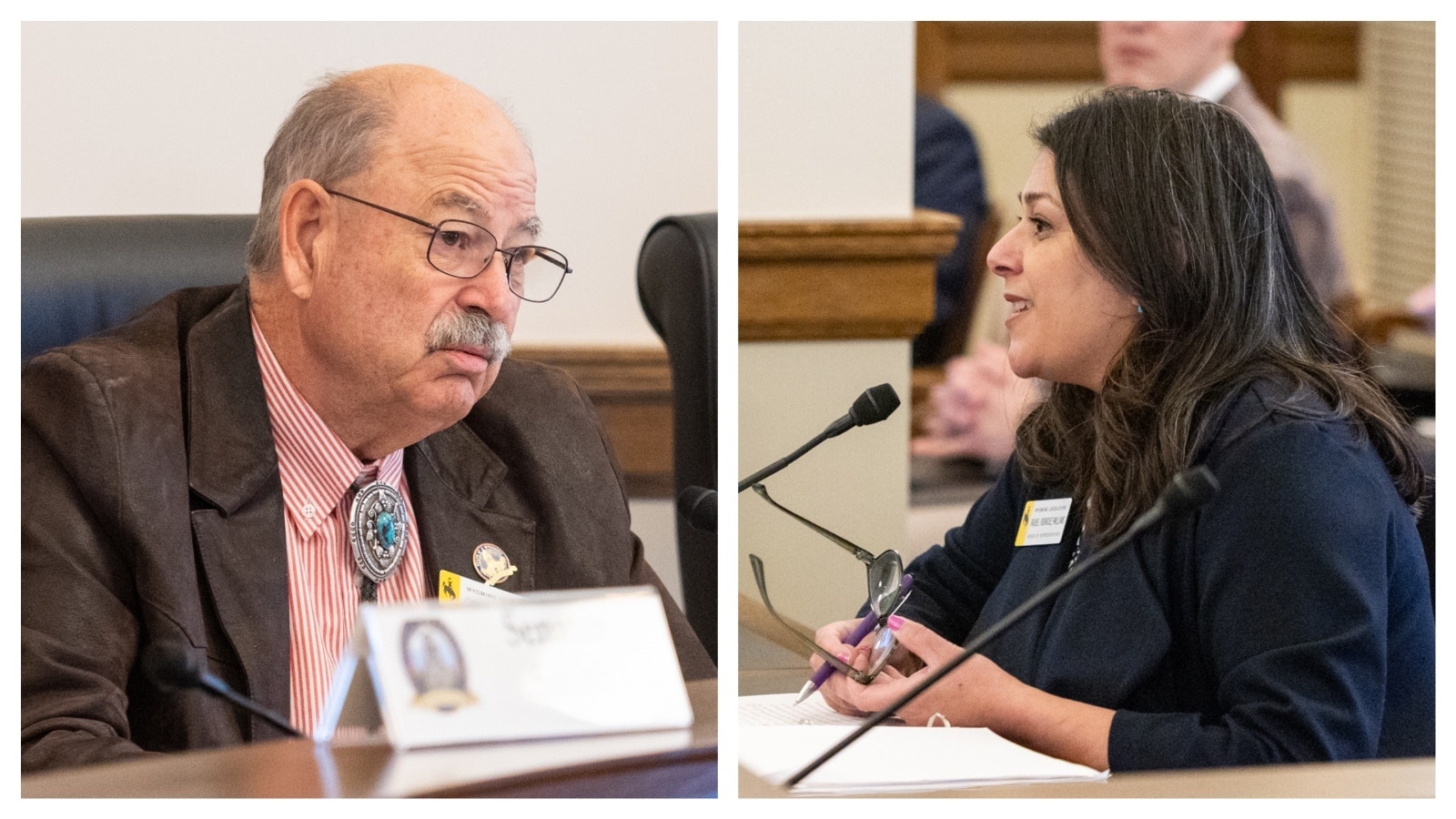By Leo Wolfson, State Political Reporter
Leo@Cowboystatedaily.com
Although they are positions elected through a secret vote and typically with little fanfare, the Senate president and speaker of the House hold important power and significance in the Wyoming Legislature.
The leaders of the legislative body’s two chambers are in charge of tasked with determining which members of the Legislature are put on certain committees and leaders of those respective committees’ respective chairmen.
They also play an important role in deciding which bills are brought up for discussion and voted on in their respective chambers. A president or speaker can single-handedly kill bills they don’t want to pass or view as having little chance of passing. They also decide which committees bills are is sent to, influencing their chances of passing in a more indirect, yet still-significant manner based on the members who sit on a particular board.
“Bills can be shaped depending on what committee they send it to because they know the houses and how they really feel about things,” said state Sen. Charles Scott, R-Casper, the longest-serving member of the Legislature. “They’ve been elected by the majority of the majority party, and they understand the system and what it wants.”
Voice Of Experience
Few likely know the Legislature better than Scott, first elected to the Legislature in 1979. He’s writing a book about his experiences.
Before Scott joined the Legislature, he attended the 1975 session as a lobbyist. That year, Republicans and Democrats had an even split in the Senate. He said legislators came to an agreement that a Democrat would be Senate president and a Republican majority floor leader.
“It was one of the most productive sessions I’ve ever seen,” Scott said, adding the experience influenced him to run for the state House four years later. “I thought it would be a lot more fun to come down and get to vote.”
Scott said although the Legislature has become more partisan over the years, most bills handled there is not. The Legislature is a machine made of many gears and parts, which must all learn to work together. Certain parts just happen to be more equal than others.
The Senate president and speaker of the House are “very influential in what happens, but everyone has a say, not just one vote,” Scott said. “It takes a coalition, but the leadership is very influential in that.”
Scott said the majority floor leaders also play significant roles, typically working as a team with either the Senate president or the House speaker. The floor leaders provide insight to the president and speaker about who should be on committees, and they control the scheduling of bills.
“They can really set the tone of the session, whether it’s more liberal or conservative,” Scott said. “They are instrumental in setting the tone.”
Republican Majority
Because of the Republican Party’s overwhelming majority in the Legislature, Scott said the Democratic Party’s power has diminished over the years, and correspondingly so has the power of that party’s minority floor leaders. The Senate president and speaker of the House negotiate with the minority floor leaders about how many seats their party members will get on each committee.
Although unlikely, the Democratic Party could be superseded by the Libertarian Party in the Legislature after the general election, as that party has seven candidates running.
But Scott also mentioned how certain floor minority floor leaders like Sen. Chris Rothfuss, D-Laramie, can still hold political sway because of his personality and trustworthiness, despite being one of only two Democrats in the state Wyoming Senate.
“If a discussion gets off the rails, he helps get it back on,” Scott said. “Chris has mastered the art of correcting without being offensive. Republicans lean on him.”
This campaign season, certain candidates have kept these positions in the backs of their minds.
Senate Outlook
State Sen. Ogden Driskill, R-Devils Tower, said one his main inspirations for running again was the opportunity to be Senate president. Driskill, the current majority floor leader, is likely in line to be the next president if he wins reelection in November.
Driskill must first get through write-in candidate Roger Connett in the general election. Driskill beat Connett by 442 votes in the primary, but Rep. Bill Fortner, R-Gillette, was also in the race, receiving more than 1,000 votes.
Fortner and Rep. Bob Wharff, R-Evanston, have said Rep. John Bear, R-Gillette, recruited Connett to run for office as a way to pull votes away from Fortner’s campaign. Fortner said this was done with the expectation Driskill would win, and thus allow Bear to stay in good favor with a highly influential member of the Legislature.
During a July interview, Bear said his only focus of the election season has been to get conservative candidates elected.
“One position can really control the flow of bills,” he said.
House Outlook
In the House, Rep. Albert Sommers, R-Pinedale, is the majority floor leader and said he plans to run for speaker if reelected. He is largely expected to win his race as he has no opponent. Sommers has served in the Legislature since 2013 and has held a leadership ranking since 2017.
Sommers, ranked the 43rd least conservative member of the House out of 60 members by WyoVote.com, may not be conservative enough for some legislators’ liking. Scott said the speaker of the House has tended to be more moderate over the years.
There also has been discussion about Rep. Mark Jennings, R-Sheridan, being a candidate for speaker, which Bear indicated he would support.
“I would support the most conservative candidate,” he said.
Jennings, who is one of the most conservative legislators, holds no leadership ranking but has been in the House since 2015. Bear said Jennings ran for speaker in 2020.
Bear said on the Vic Wright Show on Monday he expects the House Freedom Caucus, of which he is chairman and Jennings a member, to gain seats heading into the 2023 Legislature.
Nonpartisan voting for leadership positions will take place in December.





